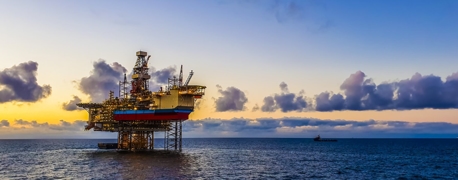Could the Ship Owners Behind the Baltimore Bridge Collapse Use the Limitation of Liability Act?

With the six missing construction workers now presumed dead, the question becomes “who will take responsibility for their deaths?” In a Bloomberg report, a maritime legal expert noted that because the Dali, a moving vessel, struck a stationary bridge, the bridge’s owners are unlikely to be held liable in this case.
That leaves the ship’s owners, Singapore-based Grace Ocean, which leads down a path familiar to our maritime accident law firm. Despite the billions in economic, commercial, and personal damages caused by the ship’s collision with the Key Bridge, Grace Ocean may be able to shield itself with the Limitation of Liability Act of 1851. In essence, the law allows Grace Ocean to limit its total liability to the value of the vessel after the crash, plus whatever revenue it gained or stood to gain from carrying its cargo.
In other words, Grace Ocean could end up paying only a few tens of millions of dollars for an accident that cost people hundreds of times that much.
The potential absurdity of this legal situation is compounded by a loophole allowing Grace Ocean to file a claim for damage to the Dali for more than they’re liable to pay out. Under the Limitation of Liability Act, Grace Ocean could actually profit from ending six lives and destroying a key piece of American infrastructure.
Could Grace Ocean Afford to Cover All Claims?
The Limitation of Liability Act was passed in 1851 to support a then-fledgling US maritime trade industry in a time before satellite imaging and weather forecasts. Its purpose was to prevent a catastrophic event from ruining a shipping company overnight. Is that the risk today? Not when you consider how much insurance Grace Ocean likely has on the Dali.
Journalists at Bloomberg reported the following:
“The ship is insured by the Britannia Protection and Indemnity Club, which is a mutual insurance association that’s owned by shipping companies. It’s one of the dozen clubs that make up the International Group of P&I Clubs…That gives the policies related to the Dali a total insured limit of about $3 billion…”
Grace Ocean and its insurers already have a policy for accidents of this scale. Not only is it within Grace Ocean’s ability to cover nearly the full cost of this accident, but they’ve already prepared to do so in advance.
Is There a Way Around the Limitation of Liability Act?
The 1851 maritime law is a serious obstacle for families seeking justice, but it’s not impossible to overcome.
We know because our firm has faced multiple maritime companies who’ve attempted to use this antiquarian law to insulate themselves from the consequences of their own actions. In one of the most egregious cases, we represented four widows whose spouses died on the container vessel El Faro when it sank after the company instructed them to sail directly into a hurricane.
Like the Dali, the El Faro had experienced loss of propulsion due to engine failure. 33 lives were lost. But the owners of the El Faro insisted that their liability be limited to the value of the vessel, which was roughly $15 million—not nearly enough to make up for the tragedy caused by the company’s recklessness. However, our firm was able to compel the owners to make things right with our clients, who’d lost husbands and long-time partners in the disaster.
Putting Grief on the Clock
If Grace Ocean files a limitation of liability claim—and it’s possible they will in the coming days—it’ll force six families who are just coming to terms with the loss of their loved ones to interrupt their grieving so they can protect themselves from what is, in essence, a legal attack. That’s because the Limitation of Liability Act forces plaintiffs to contest the claim within six months or waive their rights forever.
It’s, sadly, a situation we’ve seen play out before.
Should Grace Ocean take action in this direction, it’ll be more vital than ever that the families of the missing men seek a legal advocate who knows how to counter these tactics and has taken a strong stance against an outdated, increasingly harmful law.


